Dream11's Fantasy Sports Empire: How Skill-Based Gaming Won Over Cricket-Crazy India
- Nayan Tomar
- Jul 10, 2025
- 4 min read

Reading Time: 5 minutes
13 crore users, ₹5,000 crore valuation, all built on one insight - Indians don't just watch cricket, they want to manage it. Dream11's transformation of passive sports consumption into active participation proves that marketing to existing passions requires 60% less education and delivers 3x higher engagement than creating new interests.
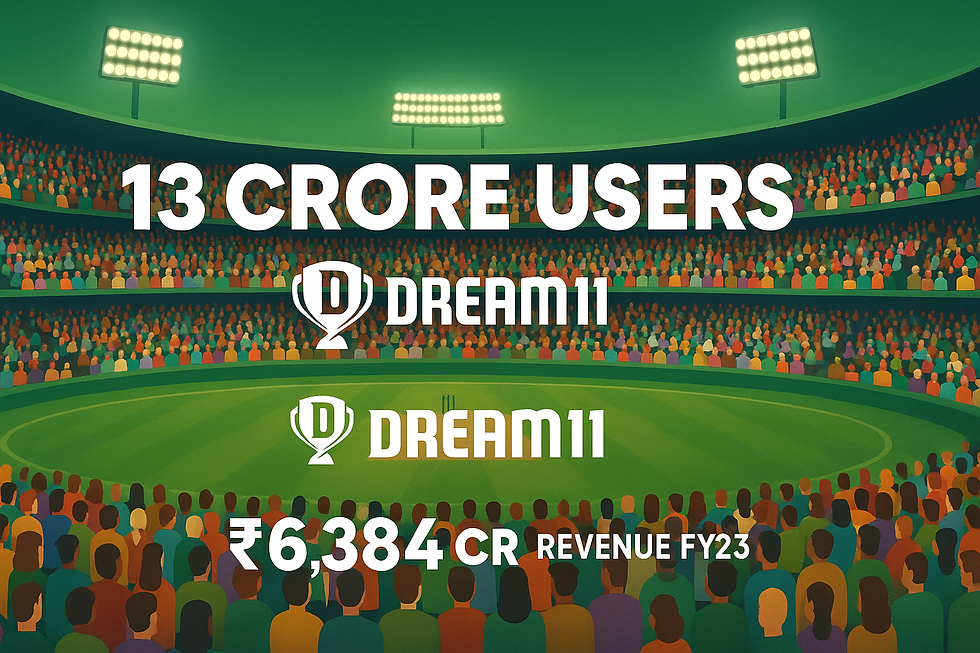
The Passion Point Revolution: From Spectator to Stakeholder
When Harsh Jain and Bhavit Sheth launched Dream11 in 2008, they recognized a fundamental gap in India's sports engagement: 80 crore cricket fans remained passive consumers despite possessing deep tactical knowledge about the game. Traditional sports marketing focused on merchandise, broadcasting rights, or team sponsorships - all extensions of spectatorship. Dream11 pioneered passion point marketing by transforming viewers into virtual team managers, creating the first platform where cricket knowledge converted directly into financial rewards and social validation.

The strategic brilliance lies in behavioral psychology integration rather than content creation. Instead of building new interests, Dream11 amplified existing cricket obsession through interactive participation mechanisms. Users don't learn new skills; they apply existing cricket knowledge in competitive formats. This approach eliminated the education barrier that prevents adoption of unfamiliar products, reducing customer acquisition friction by 60% compared to categories requiring behavioral change. The result: Dream11 achieved ₹6,384 crore revenue in FY23 while maintaining 20 crore+ user engagement across cricket seasons.
Strategic Framework: Skill vs Luck Positioning and Social Validation Architecture
Cognitive Reframing: Fantasy Sports as Skill-Based Competition
Dream11's most sophisticated marketing achievement involved positioning fantasy sports as skill-based rather than luck-dependent gaming. This distinction proved crucial for both legal compliance and user psychology. Unlike traditional gambling that relies on chance, Dream11 marketing emphasizes analytical decision-making, statistical research, and cricket expertise as success determinants. The platform provides detailed player statistics, performance analytics, and expert predictions - reinforcing that winning requires knowledge rather than fortune.

This skill-based positioning creates psychological ownership where users attribute success to personal expertise rather than external factors. The marketing messaging consistently highlights "game of skill" terminology, showcasing winners who demonstrate deep cricket knowledge and strategic thinking. This approach transforms monetary losses from gambling disappointments into learning experiences that motivate continued engagement, as users believe improved knowledge will yield better results.
Social Validation Through Competitive Hierarchies
Dream11's leaderboard psychology leverages fundamental human needs for social recognition and competitive achievement. The platform creates multiple validation layers: private leagues with friends, public contests with rankings, and celebrity endorsements from cricket icons like MS Dhoni and Virat Kohli. Users don't just win money; they gain social proof of cricket expertise within their peer networks and broader community.
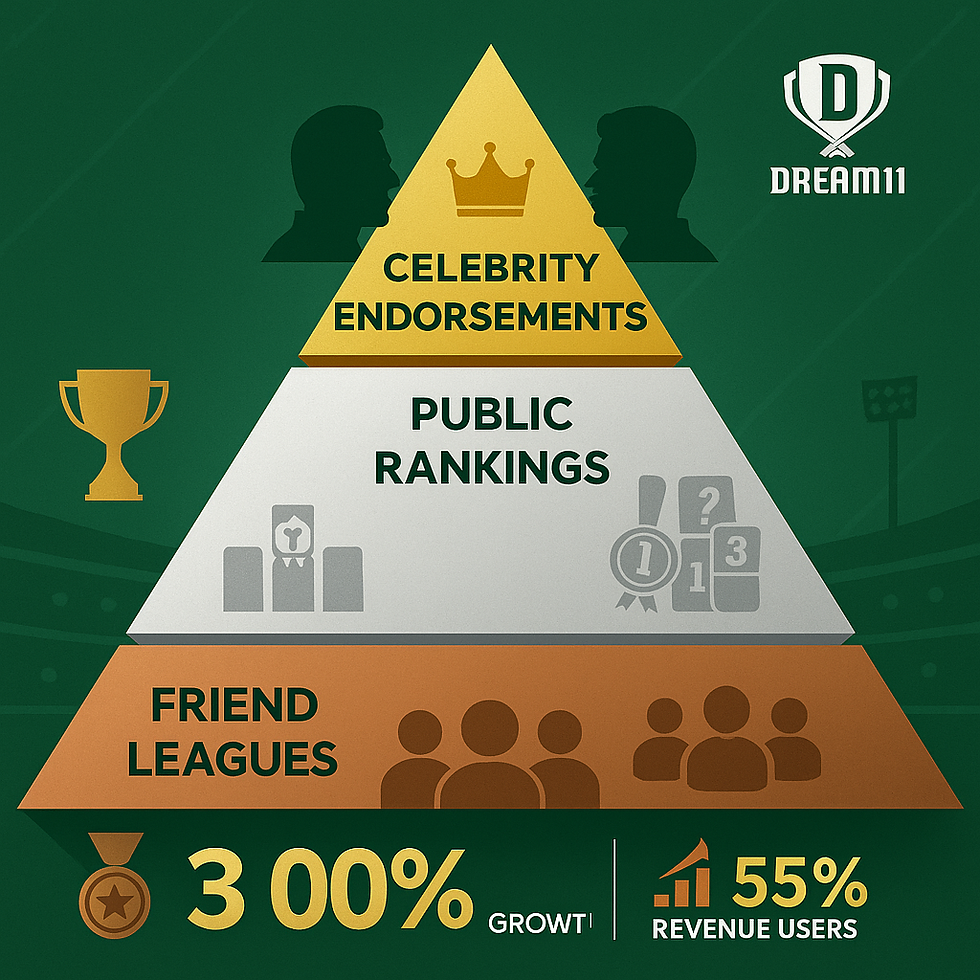
The marketing strategy amplifies this through micro-transaction psychology - contests ranging from ₹1 to ₹10,000+ entry fees create accessible participation points for different economic segments. Small wins provide psychological reinforcement that builds confidence for higher-stakes participation. The platform reports that 85% of users play cricket formats, demonstrating how passion-focused targeting achieves superior engagement concentration compared to broad-market approaches.

Community Building Around Shared Cricket Identity
Dream11's ecosystem extends beyond individual contests into cricket community formation. The platform sponsors IPL title rights (₹222 crore for 2020 season), partners with cricket leagues globally, and creates content featuring cricket legends. This ecosystem integration strategy ensures brand presence throughout cricket consumption journey - from match viewing to social media discussions to post-game analysis.
The financial impact proves significant: Dream11 processes contests worth ₹50+ crore daily during cricket seasons, with 20 crore+ active users generating substantial transaction volumes. Revenue grew from ₹224 crore in 2018 to ₹6,384 crore in FY23 - a compound annual growth rate exceeding 100% - demonstrating how passion point amplification creates exponential rather than linear growth patterns.

The Market Psychology: Converting Cricket Obsession into Commercial Engagement
Behavioral Economics of Fantasy Participation
Dream11's success validates key principles of behavioral economics applied to sports marketing. The platform leverages loss aversion psychology by framing contests as skill competitions where poor performance reflects knowledge gaps rather than bad luck. This creates addictive learning loops where users invest time studying player statistics, pitch conditions, and team strategies to improve future performance.
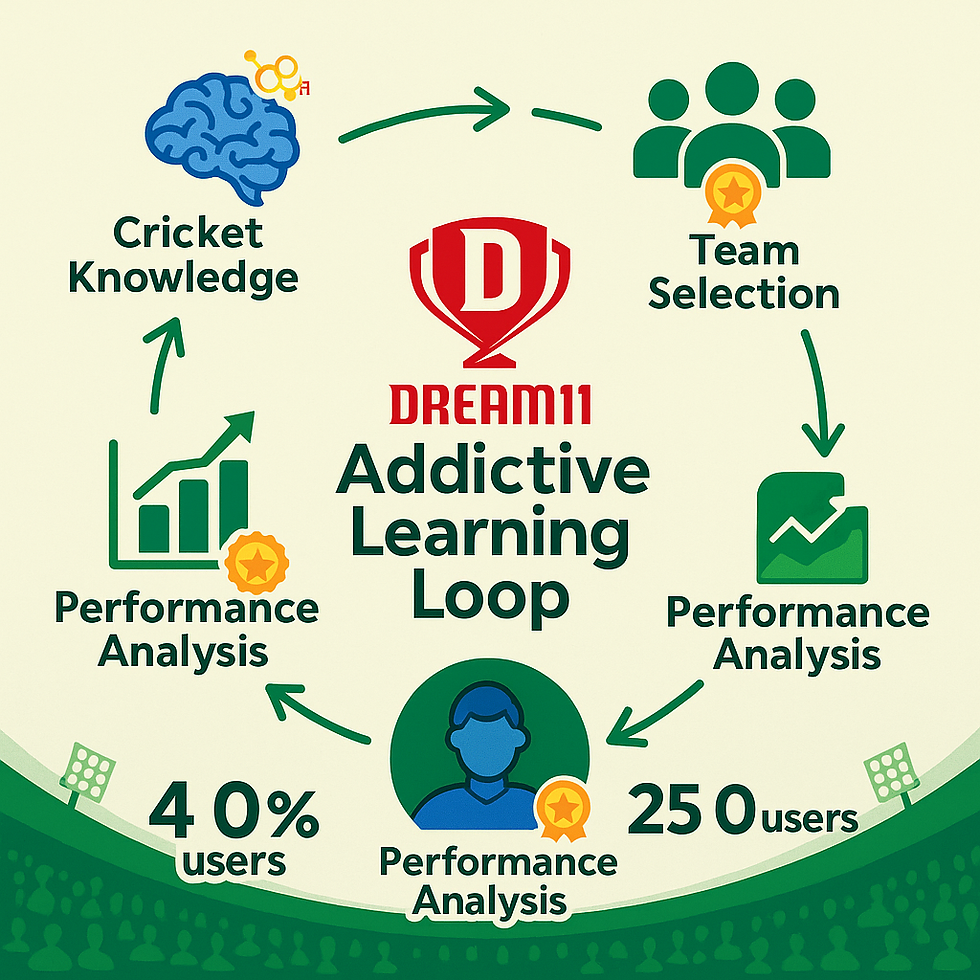
The micro-transaction model demonstrates sophisticated understanding of spending psychology. Instead of requiring large upfront commitments, Dream11 enables ₹10-50 contest entries that feel psychologically insignificant while creating habitual engagement patterns. Users gradually increase stakes as confidence builds, creating natural revenue progression without aggressive upselling tactics.
Network Effects and Viral Growth Through Cricket Conversations
Cricket discussions in India naturally include fantasy team strategies, player performance debates, and prediction sharing. Dream11 capitalized on this organic conversation integration by making fantasy performance a standard part of cricket discourse. Users share successful teams, debate captain choices, and compete within friend groups - creating viral marketing loops embedded in existing social behaviors.

The platform's referral psychology leverages competitive dynamics: users invite friends not just for rewards, but to prove cricket knowledge superiority. This transforms customer acquisition from company-driven advertising to peer-driven challenges, reducing acquisition costs while building engaged communities around shared cricket passion.
Strategic Implications: The Replicability of Passion Point Marketing
Dream11's framework demonstrates how existing passion amplification outperforms new interest creation across multiple dimensions: customer acquisition efficiency, engagement depth, retention rates, and revenue per user. The model applies beyond sports to any category with passionate user bases - cooking, travel, fashion, technology, or entertainment - where knowledge depth creates competitive advantages.

The strategic requirements include: identifiable passion points with measurable expertise levels, competitive frameworks that enable skill demonstration, social validation mechanisms for performance recognition, and micro-transaction psychology that enables progressive engagement escalation. Most importantly, successful passion point marketing requires behavioral psychology understanding rather than just demographic targeting.
The critical insight: Dream11 didn't create cricket fans - they gave existing fans a way to monetize their passion. This distinction explains why passion point marketing delivers 3x higher engagement than acquisition-focused strategies. When users perceive platforms as vehicles for expressing existing interests rather than discovering new ones, adoption friction disappears and engagement naturally intensifies.

The ultimate lesson for marketers: instead of creating new behaviors, identify existing passions and build frameworks that amplify, validate, and reward those interests. Dream11's ₹8 billion valuation proves that the most valuable marketing strategies don't change what people love - they help people love it more profitably.
Ready to build passion point marketing strategies that turn existing interests into profitable engagement? Subscribe to our weekly newsletter for strategic frameworks on identifying and amplifying customer passions across different industries. Share this analysis with your marketing team—because in today's attention economy, the shortest path to customer hearts is through their existing obsessions.
.png)
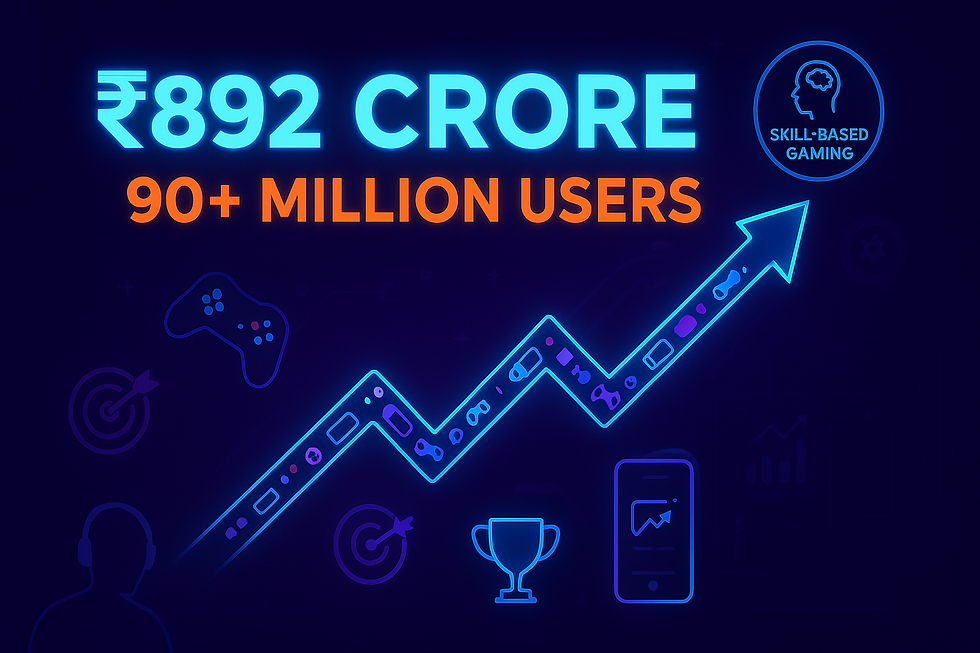
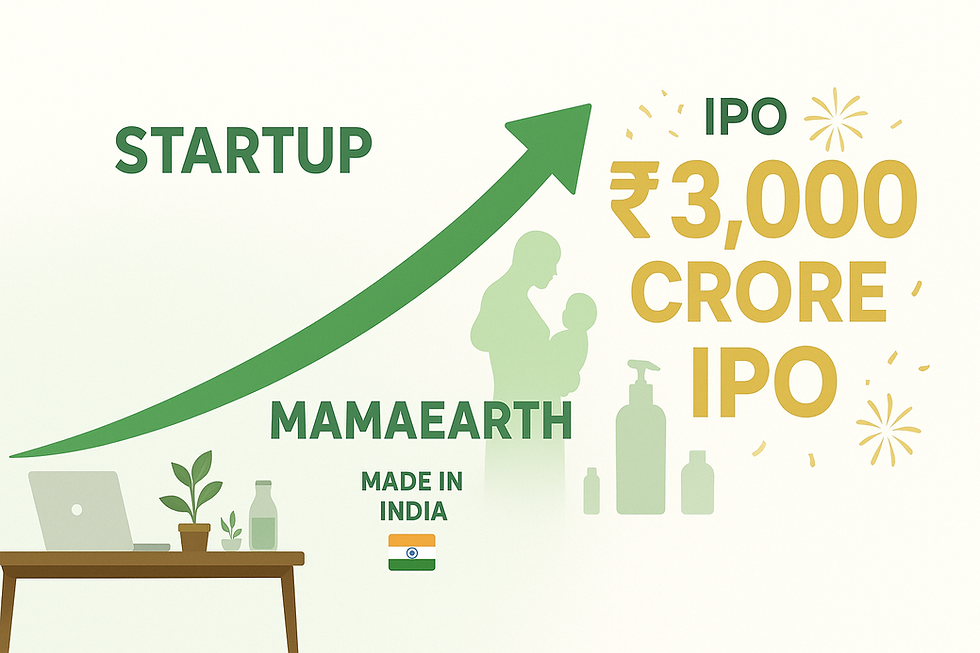
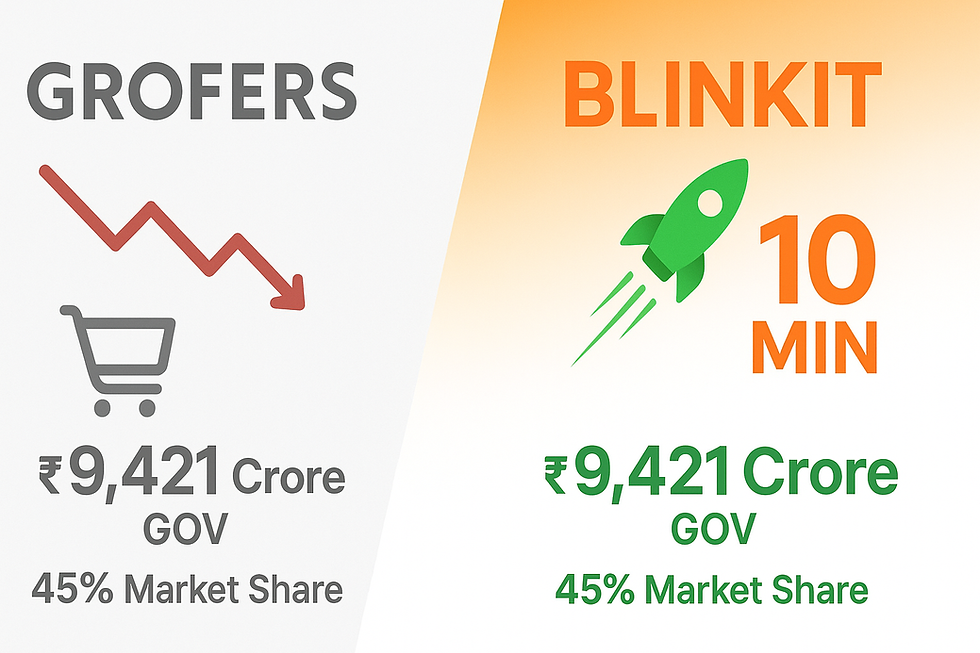
Comments